In Conversation with Dr. Emad Rahim
Posted On |
Image

|
The most recent cohorts of CenterState Up Start's Start It! classes are adopting a new model in an effort to reach new people and make entrepreneurship more accessible. This round of classes are being hosted at community partner sites in specific Syracuse neighborhoods, the North Side Learning Center and Blueprint 15. By having partner organizations involved, it creates an opportunity to connect with people who may not have otherwise enrolled in a location where residents already feel comfortable.
The cohort at the North Side Learning Center is led by Dr. Emad Rahim, CenterState CEO's Syracuse Surge Entrepreneurship Manager. Ahead of the North Side Learning Center cohort's graduation, Rahim discussed what makes Start It! classes work and why the cohort he's teaching is special.
What makes Start It a unique and effective program?
Dr. Emad Rahim: Benefits of programs like this are that they are uniquely small, more intimate classes where you really get to know the students and understand what they are really feeling. You not only hear their ideas, but truly understand where their ideas come from, their stories and their problems. Where in larger classes that are more structured, it may feel a lot more intimidating, especially if someone's new to this environment. In the Start It program, you have people coming from very diverse backgrounds, different parts of Syracuse, different levels of experience. But because of the small, intimate classroom environment people are not as intimidated to share their ideas.
You find that that even outside of the instructors, the participants are willing to help each other out. You always find people that are a little bit more advanced in their business development or they might have an established brick-and-mortar business ready. All of a sudden, they're adding their own unique experiences and education to the conversation, and they can provide support that I may not be able to because they live in that neighborhood. Like I previously mentioned, one of the unique things about this program is that we meet all students where they are. While it is a structured curriculum, we're open to modifying and update things based on the needs of the students.
What did you expect from teaching this class before it started, and did that evolve throughout the experience?
ER: I didn't have any clear expectations. Overall, I think it's been a good experience working with majority New Americans that are both new to Syracuse but also new to the entrepreneurship ecosystem. It’s providing them with ideas, support and resources and participating in a very unique conversation. Many of the conversations are tied to not just starting a business, but how you start a business with all these other obstacles that they deal with, such as being a New American and things that are tied to culture, religion and family structure. I think that's very unique to this group versus other groups that we have taught in the past.

What has it been like to teach in the Northside Learning Center space (NLC)? What is the benefit of teaching there?
ER: It’s been surreal because I was a kid wandering around that building in the late 80s and early 90s. My family and I resettle here as refugees. We received services from the NLC building when it was operated by the Syracuse City School District as the Refugee Assistance Center. So, it was very surreal seeing this building and the rooms and things like that. I think the important thing about teaching out of that building shows the community that we are willing to meet people where they are versus forcing them to come to us, trying to create more convenient locations in the city for the clients that we serve.
Based on where we're located, I think that it also creates open conversations to take place because they are comfortable with this space. Many of the people that we are teaching out of the NLC live in that area. They utilize the services and know the staff at the NLC. They have children and family members that utilize the after-school program, vocational services, the food pantry, things like that. They're also using the Masjid, which is right next door, for their religious services. I think it makes it more comfortable for that population and creates more of an open, meaningful conversation that goes beyond just the typical small business development and business plan type of lessons that we normally discuss. It allows them to feed off each other's ideas, experiences and resources.
I think if they were not in the NLC, they may be more intimidated to share what’s on their minds or obstacles that they are dealing with because there are language barriers or cultural differences. Many of them speak different languages, so even though English is not their first language, they feel comfortable to ask for help and support.
Have there been moments of teaching the class that really stand out to you as fulfilling or special?
ER: Because I'm also a Muslim, when they mention more ethnic and religious related topics regarding women clothing, like the type of dress, the hijab, the jilbab, the language as it relates to Islamic dressing for women, I comment on them. They first started laughing because they thought it was pretty funny. This also helped break the ice. I gave an example of what my wife and daughter wear. It made them more comfortable to have the conversation, especially when it comes to more conservative topics for Muslim women. They might feel uncomfortable speaking to men and non-Muslims. But because I was able to connect with them in regard to their dressing, culture and the type of business they're looking to explore, it made them more open to having this conversation with me.
I think if someone else was teaching it or it was in a different space, that comfortability and familiarity wouldn't have come out. This space and our connection allowed them to continue sharing certain information and examples, so even if there's a language barrier, they're pulling up pictures and referencing examples to show me what they are referring to without feeling embraced.
What is a lesson do you hope participants take away from this class?
ER: For a lot of New Americans, especially those coming from the Middle East or East Asia, starting a business is extremely difficult. Not just because the financial commitment, but there are government regulatory issues. There are barriers as it relates to people's ethnicities, tribe and religions. So, I think one of the biggest values and takeaways for people is that even if they don't start a business right away, they're comfortable in seeing themselves one day starting a business in Syracuse. That their entrepreneurship dream is possible. I think if they were not in this space, those conversations we are having now may not have taken place in their homes, in their schools, or in the mosque. I hope that when they do leave the class, whether or not they start a business right away, that they still see the possibility later on.
What would your advice be to someone who is on the fence about starting a business?
ER: It's a conversation when it comes to starting a business. Make sure that this business is something that can live outside of your mind, can live outside of you. By sharing that, you start seeing different perspectives regarding innovation, the possibility, the challenges and the opportunities that exist. You might also realize that there are people out there that are also interested in what you're looking to do, and there are resources and support networks that are available. But in order to see those possibilities, to see those opportunities, you have to take that first step and participate and engage in programs like ours. By sharing your business ideas, it allows you to figure out if this is something you should move forward in.
Other
CEO News
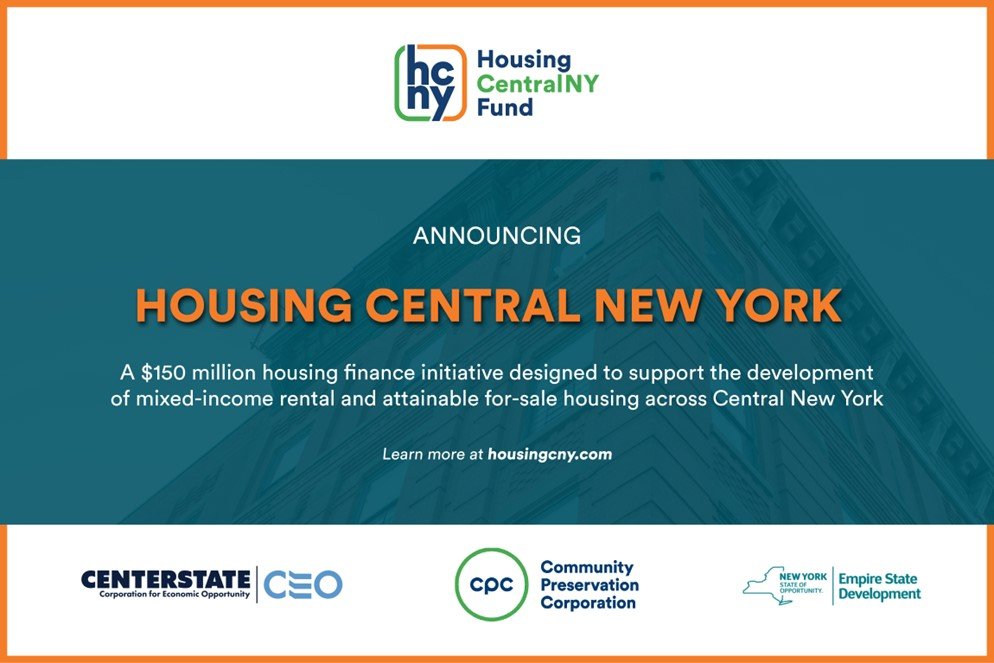
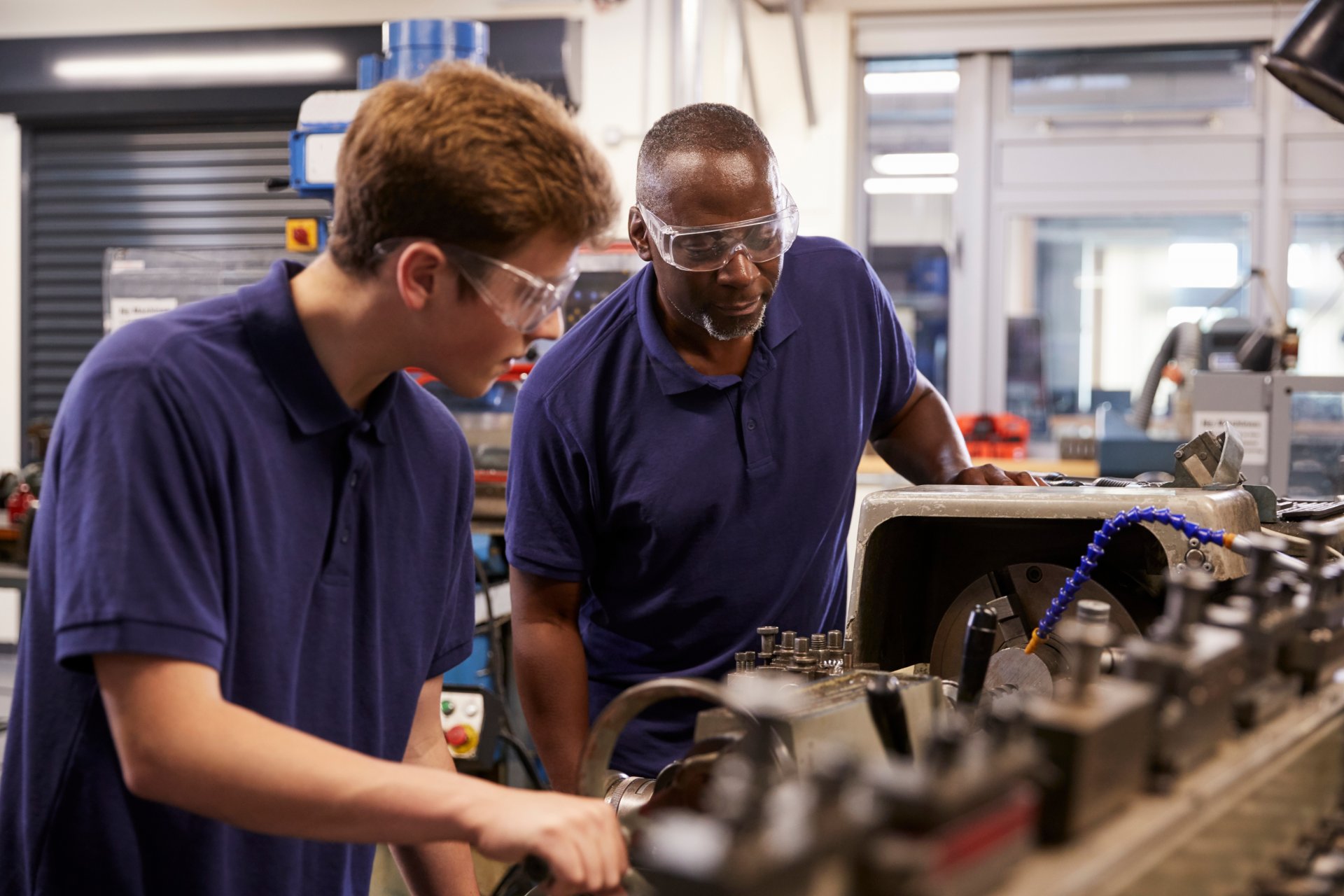
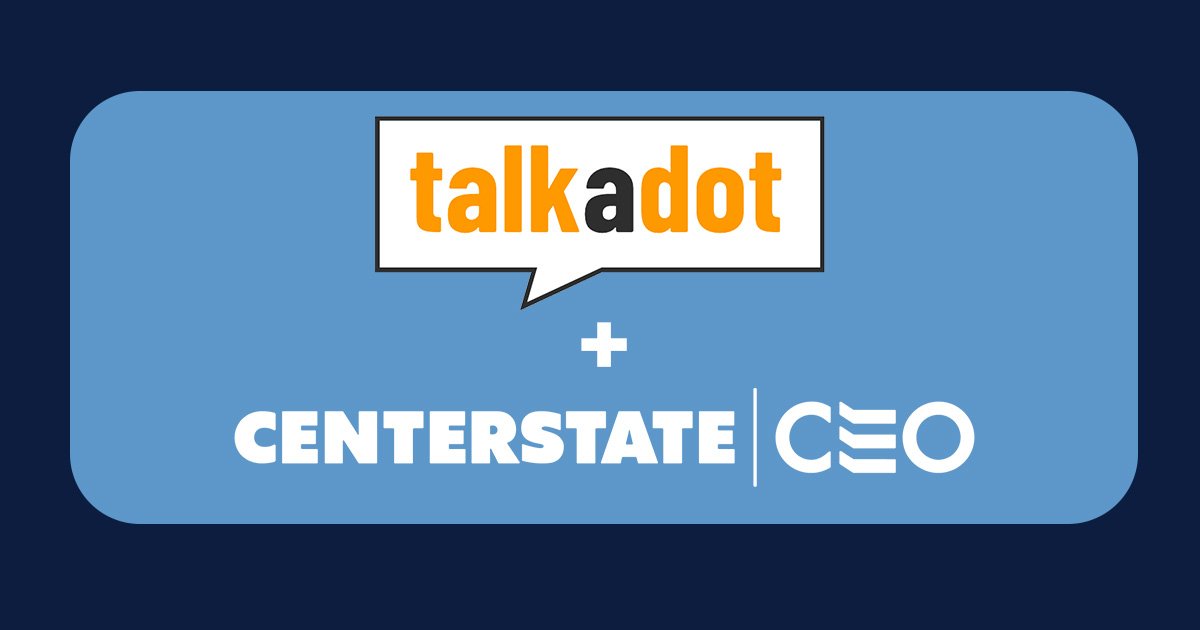
CEO News | 02/06/2026New Benefit Gives Members Access to Speakers Through TalkadotCenterState CEO is excited to introduce a new member benefit through a partnership with Talkadot (www.talkadot.com), a data-driven speaker booking platform. CenterState CEO members now have unique access to Talkadot, providing a… |

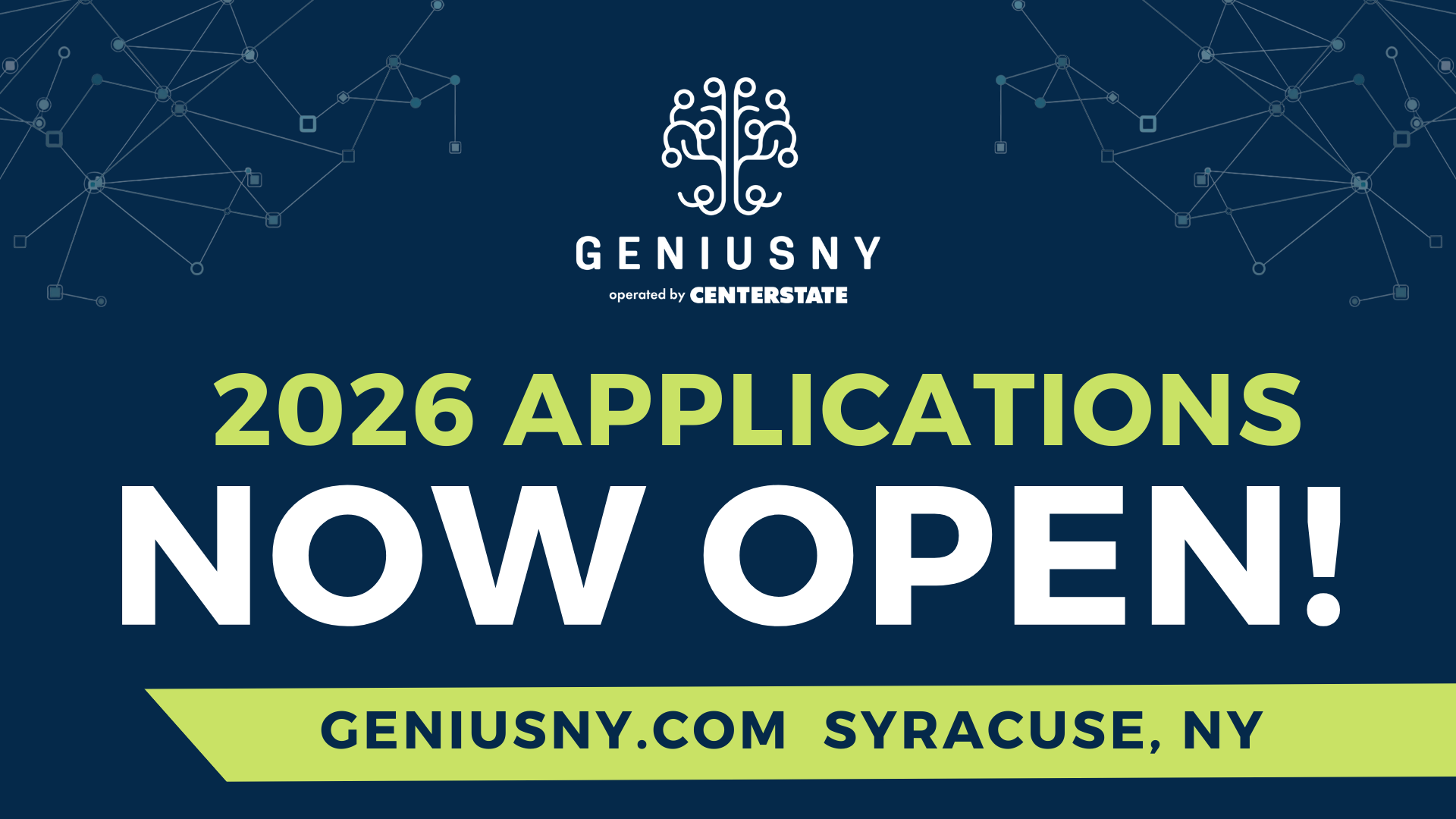
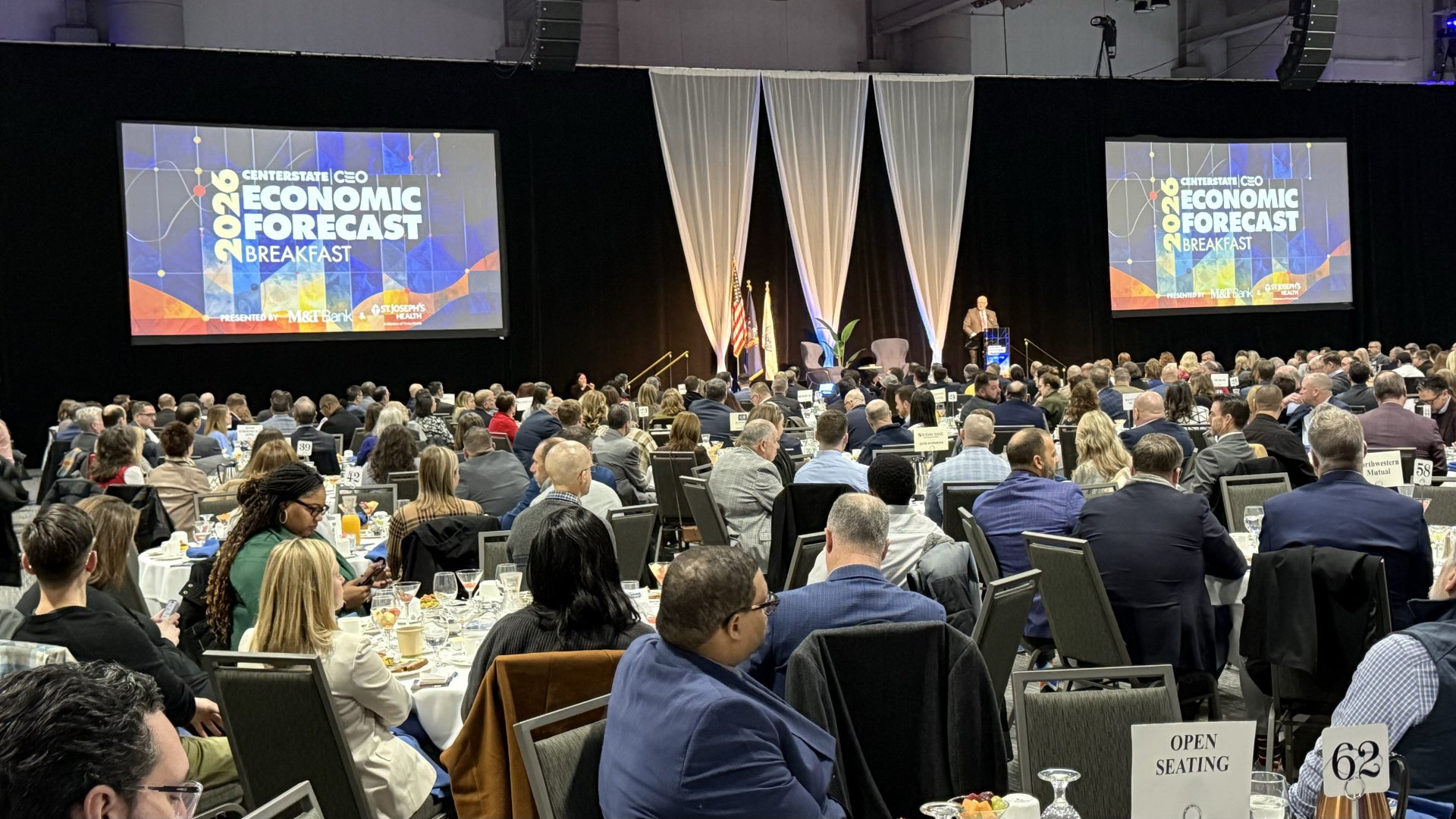
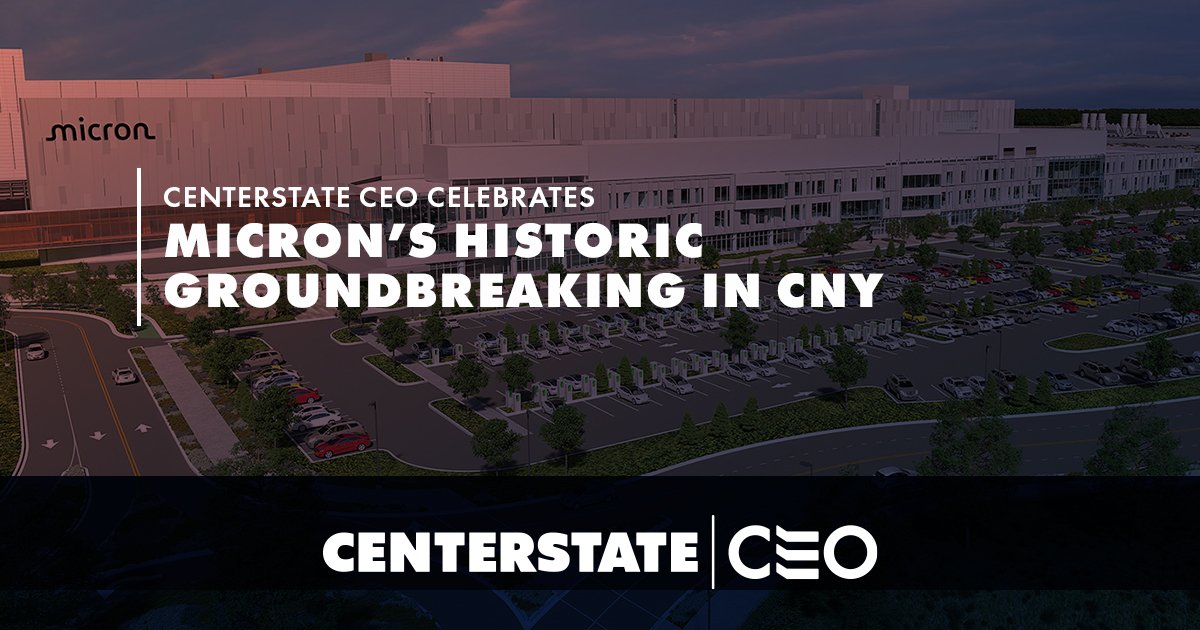
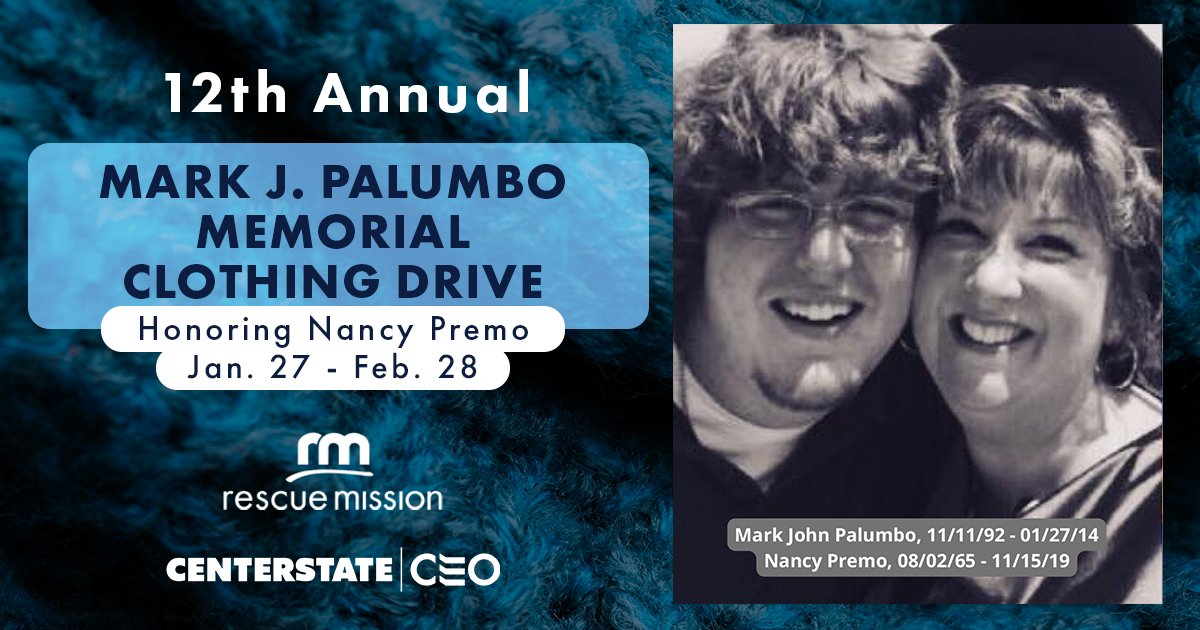
CEO News | 01/16/202612th Annual Mark J. Palumbo Memorial Clothing Drive, honoring Nancy PremoCenterState CEO is hosting the 12th annual Mark J. Palumbo Memorial Clothing Drive in honor of Nancy Premo. Bring gently used items such as winter coats, hats, sweatshirts, gloves, scarves, sweaters and warm socks to CenterState CEO's… |


